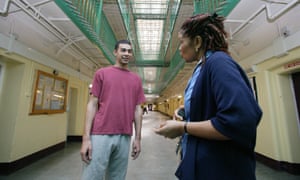GOSO shares thoughtful and relevant articles on our social media channels every day. Here’s what our staff has been reading lately.

Improving people’s health can prevent offending
Our justice system should work with other services to ensure people are active and responsible contributors to society
By Michael Matheson / Originally published June 29, 2016
 Before coming into political office I worked in occupational therapy, which left me with a lasting impression of the importance of providing tailored support to individuals to give them the opportunity to become active members of society. I understood what the health service and the justice system have in common: our most deprived communities are those most likely to experience poor health outcomes and high levels of crime.
Before coming into political office I worked in occupational therapy, which left me with a lasting impression of the importance of providing tailored support to individuals to give them the opportunity to become active members of society. I understood what the health service and the justice system have in common: our most deprived communities are those most likely to experience poor health outcomes and high levels of crime.
Improving people’s physical and mental health can help to reduce and prevent offending. People should be held to account for their behaviour, but thereafter our justice system and other key services should aim to support them to take their place as active and responsible contributors to society.
This principle underpins our approach to transforming the way we deal with women in prison, with a move towards a model of custody that helps to maintain links with the community. Evidence tells us that housing women in smaller, community-based units closer to their families, and providing additional support to address underlying issues, is what we need to do to stop them from committing further crimes.
In certain cases, custodial sentences will always be required and it is critical that we ensure that custody provides opportunities to help people turn their lives around. The Scottish prison service has a renewed focus on the delivery of purposeful activity in our prisons and it is committed to working in partnership with health and social care and to improve the health and wellbeing of people in custody.
For the vast majority of people who offend, custody is not the best approach. I want to see prison used less frequently and a stronger emphasis on robust community sentences. This is not about being soft on crime, it is about being smart by addressing the factors that cause reoffending.
We know that the provision of flexible and coordinated approaches, working with people as individuals with strengths, needs and aspirations rather than simply seeing them as “offenders”, can help them to make positive, lasting changes in their lives.
There is growing acceptance and support for this agenda and I want Scotland to seize this opportunity to make a decisive shift in how we tackle the factors that cause reoffending and help people to transform their lives and benefit our communities.
